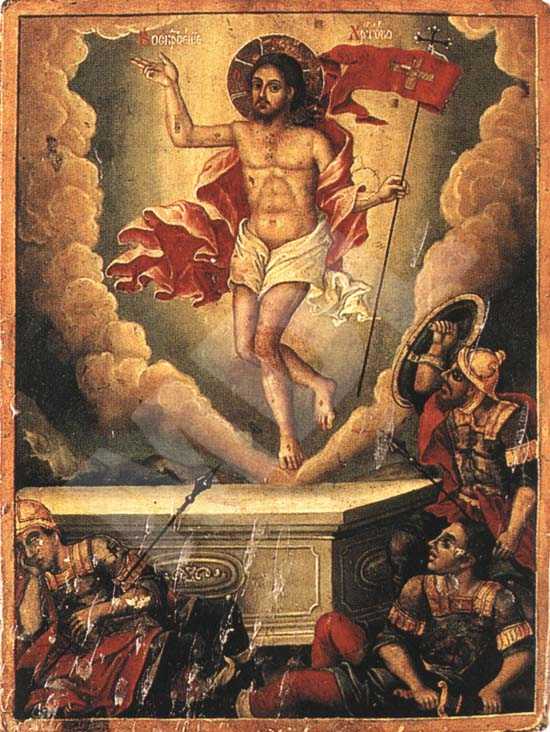The Resurrection of Christ
Type:
Icon
Period:
The beginning of the
19 century
Toma Vishanov-Molera, born around 1750, painter of icons and murals, founder of the Bansko school of art. He grew up in the family of the clergyman Vishan. Around 1765 he went to Vienna, where he studied painting. It is not known who were his teachers there or when he returned to Bansko. His fellow villagers called him the Moler, Molera(from German Maler ‘painter’), whence the entire family's surname. Under the influence of the European 18th century art Toma Vishanov painted his works in a new manner, unknown until then in Orthodox art. The figures are realistic, vivid, expressive. Toma Vishanov is an innovator in the early period of Bulgarian Renaissance. His ideas on art were not understood and at first were rejected by his contemporaries. His work has not been studied extensively. He died after 1811 in Bansko.
Dimmensions (cm):
31.5
/ 23
/ 2
Location
Country: Bulgaria
Province: Blagoevgrad
Town: Bansko
Church: St. Trinity
Source
Country: Bulgaria
Province: Blagoevgrad
Town: Bansko
Church: St. Trinity
Description
A traditional iconographic treatment of the theme, developed on two levels. Painted in the lower part of the pictorial field is the open tomb. Around it are the soldiers, painted in various and very expressive attitudes. Two of them are watching with amazement the miracle, and the third one is sleeping. The iconographer has painted them in the traditional for that time armour. In the icon's upper part is Christ, in a radiance of clouds, with a white belt around him and a red, flying mantle on the shoulders. In his left hand he is holding an euclesia, and with his right hand he is blessing. The manner of the painting and the colouring betray the brush of the founder of the Bansko school of art.
Iconographical technique: Combined
With velaturas on the armour of the soldiers. The varnish cover is applied thinly and unevenly. The gilding on the aureole is with gold-leaf.
Base material: Wood
The icon's base is a one-piece softwood panel, with two reinforcing beams. The ground coat is of plaster, laid in a thin and even layer.
State, restoration traces and comments
There are damages on the icon's pale-blue-greenish background, along the enclosing it frame and on the armour of the soldiers. There are traces of retouchings on the faces of the soldiers and on Christ's aureole.


